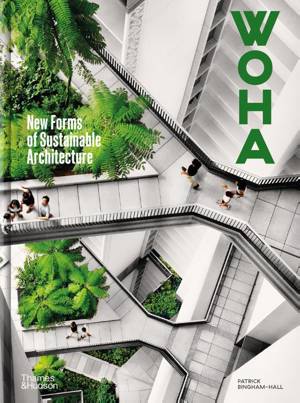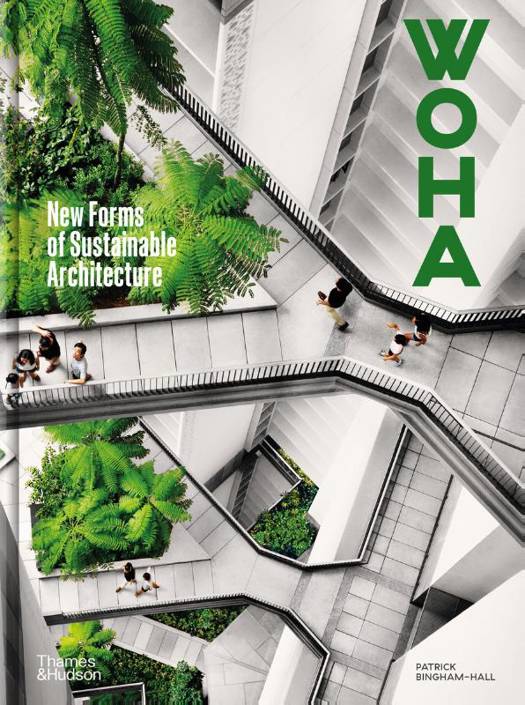
Bedankt voor het vertrouwen het afgelopen jaar! Om jou te bedanken bieden we GRATIS verzending (in België) aan op alles gedurende de hele maand januari.
- Afhalen na 1 uur in een winkel met voorraad
- In januari gratis thuislevering in België
- Ruim aanbod met 7 miljoen producten
Bedankt voor het vertrouwen het afgelopen jaar! Om jou te bedanken bieden we GRATIS verzending (in België) aan op alles gedurende de hele maand januari.
- Afhalen na 1 uur in een winkel met voorraad
- In januari gratis thuislevering in België
- Ruim aanbod met 7 miljoen producten
Zoeken
€ 57,99
+ 115 punten
Omschrijving
A major overview of Singapore’s most exciting architecture practice, documenting the complete corpus of WOHA’s pioneering sustainable and built work.
WOHA is at the vanguard of urban and ecological revitalization in Singapore and a pioneer of Southeast Asia’s green-building revolution. Founded by Wong Mun Summ and Richard Hassell in 1994, Singapore’s most dynamic architecture studio is known for delivering innovative and sustainable design solutions to combat the challenges of climate change, biodiversity loss, and urbanization.
Even within Singapore’s leading-edge architecture scene, WOHA have broken new ground, and they are continuing to do so in our rapidly expanding cities where far-sighted thinking is imperative to sustainable and sociable development. Its projects stretch from Singapore to Bangladesh, China and Australia, where the practice’s ambitions are being realized in works like the self-sufficient Punggol Digital District in Singapore.
This complete overview documents WOHA’s pioneering sustainable and built work, with important ongoing projects followed by a listed chronology. It is a timely assessment of the practical realization of WOHA’s theories and principles, and the environmental responsibilities now shouldered by architects and urban planners worldwide.
WOHA is at the vanguard of urban and ecological revitalization in Singapore and a pioneer of Southeast Asia’s green-building revolution. Founded by Wong Mun Summ and Richard Hassell in 1994, Singapore’s most dynamic architecture studio is known for delivering innovative and sustainable design solutions to combat the challenges of climate change, biodiversity loss, and urbanization.
Even within Singapore’s leading-edge architecture scene, WOHA have broken new ground, and they are continuing to do so in our rapidly expanding cities where far-sighted thinking is imperative to sustainable and sociable development. Its projects stretch from Singapore to Bangladesh, China and Australia, where the practice’s ambitions are being realized in works like the self-sufficient Punggol Digital District in Singapore.
This complete overview documents WOHA’s pioneering sustainable and built work, with important ongoing projects followed by a listed chronology. It is a timely assessment of the practical realization of WOHA’s theories and principles, and the environmental responsibilities now shouldered by architects and urban planners worldwide.
Specificaties
Betrokkenen
- Auteur(s):
- Uitgeverij:
Inhoud
- Aantal bladzijden:
- 320
- Taal:
- Engels
Eigenschappen
- Productcode (EAN):
- 9780500025307
- Verschijningsdatum:
- 25/08/2022
- Uitvoering:
- Hardcover
- Afmetingen:
- 216 mm x 289 mm
- Gewicht:
- 1798 g

Alleen bij Standaard Boekhandel
+ 115 punten op je klantenkaart van Standaard Boekhandel
Beoordelingen
We publiceren alleen reviews die voldoen aan de voorwaarden voor reviews. Bekijk onze voorwaarden voor reviews.









